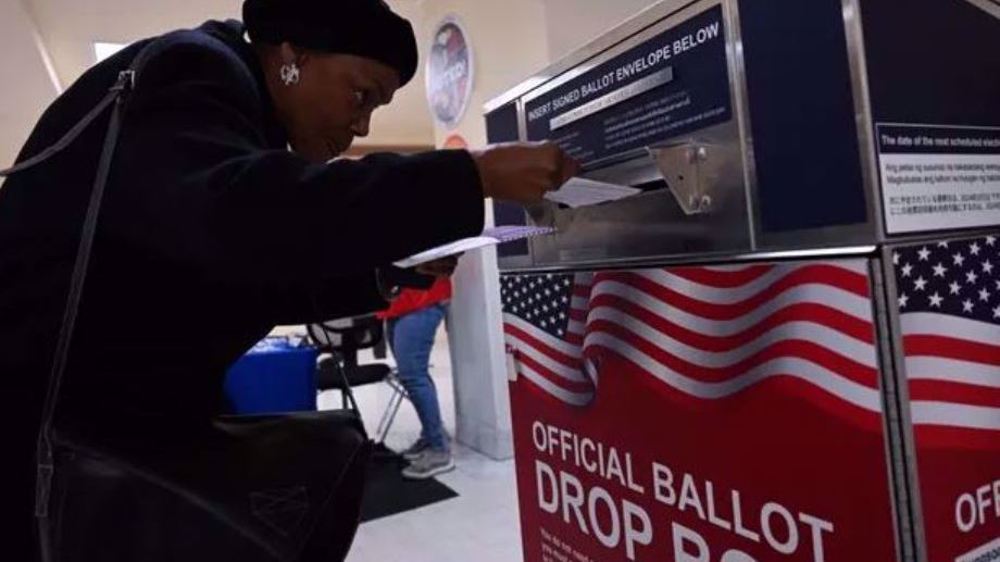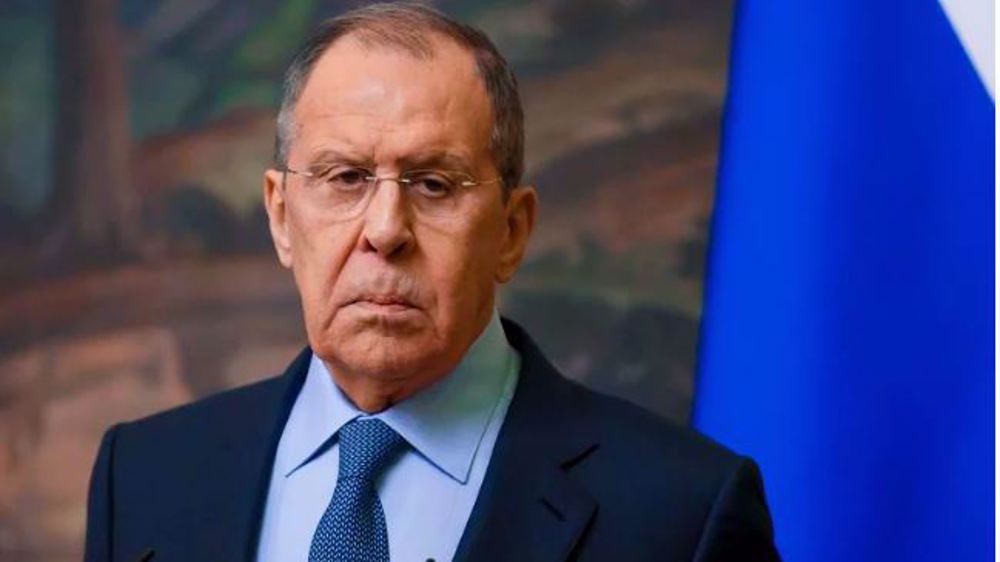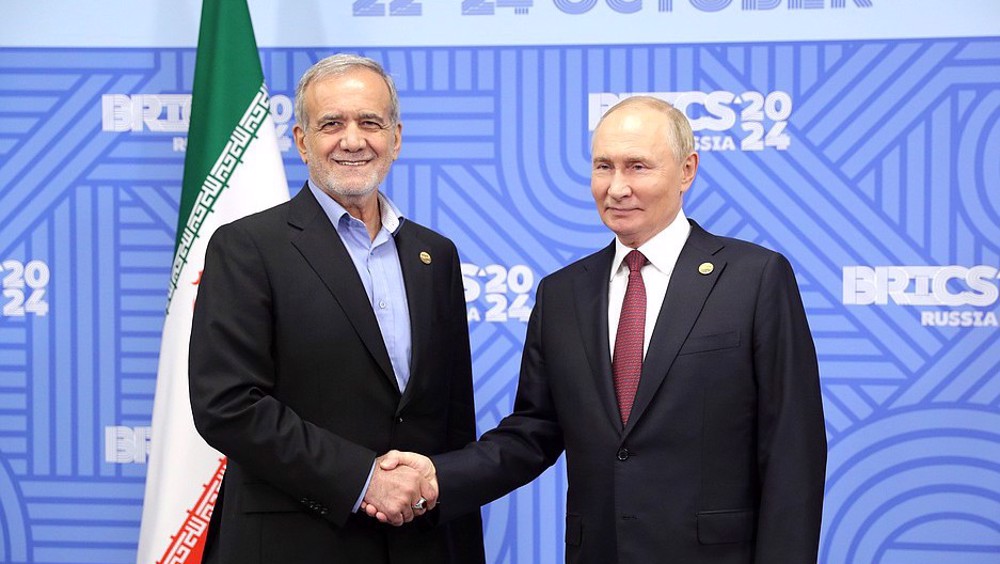Blast hits St. Petersburg metro, casualties reported
Ten people have been reportedly killed and several others injured after a bomb blast hits a metro station in Russia's St. Petersburg.
According to preliminary information released by Russia’s TASS news agency, rescue teams were being dispatched to the site of the blast, with a witness telling Reuters that eight ambulances were seen near the Sennaya Ploshchad metro station.

Another Russian news agency, RIA Novosti, however, reported that there had been apparently two separate explosions at two metro stations.

Three metro stations have been closed, according to Fontanka local media outlet.
"An evacuation from the stations is ongoing, there are people injured," the St. Petersburg metro said in a statement carried by Russian news agencies, adding, "An unidentified object supposedly blew up in a (train) carriage."
Another report by St. Petersburg emergency services indicated that there had been blasts in two train carriages at two metro stations.

Russia’s Interfax news agency cited a source as saying that at least one of the blasts involved a device filled with shrapnel, adding that at least 50 people had been injured.
Putin condoles with victims' families, says all possibilities considered
Russian President Vladimir Putin has issued a message of condolence, sympathizing with the families of those killed in St. Petersburg subway explosion.
Putin is currently in St. Petersburg for a meeting with his Belarusian counterpart, Alexander Lukashenko.

Speaking to reporters, he said the cause of the blasts was not clear yet, adding that all possibilities, including terrorism, were being considered.
“I have already spoken to the head of our special services, they are working to ascertain the cause (of the blasts),” Putin said at a meeting with Lukashenko, adding, “The causes are not clear, it's too early. We will look at all possible causes, terrorism as well as common crime.”

St. Petersburg metro closed after bomb attack
Early videos showed injured people lying bleeding on a platform to be treated by emergency services while others ran away from the platform amid clouds of smoke.
The metro network servicing Russia's second largest city said in a statement later on Monday that it had closed all stations at 15:40 local time (12:40 GMT) to facilitate an ongoing evacuation operation. It is still unclear when the underground system will open again.
Following the incident, Moscow's deputy mayor told media that authorities in the Russian capital were taking steps to tighten security on Moscow subway.
No group or individual has assumed responsibility for St. Petersburg metro blasts yet.

'Only one blast between two stations'
Later on, an unnamed source in Russia's emergency services was quoted by Reuters as saying that there was only one blast in St. Petersburg's metro system, which happened on a train between two stations.
"There was one blast in one site in between (stations) as the train arrived at the Technology Institute station from Sennaya (Ploshchad) station," the source added.
Second explosive device 'made safe'
Meanwhile, Russian security agencies reported that they had found an explosive device at a metro station in central St. Petersburg and made it safe.

A statement by the National Anti-Terrorist Committee said in on Monday that the device was found at the Ploshchad Vosstaniya metro station, which was a different location from where a blast earlier took place.
'Images of possible organizer of metro attack probably captured'
A later report indicated that surveillance cameras in St. Petersburg's metro system may have captured images of the person suspected of organizing Monday's deadly train blast, Russia’s Interfax news agency quoted an unnamed source as saying.
"Images of the suspected organizer of the metro blast were captured on metro station cameras," the source noted, adding that the explosive device may have been left in a briefcase in a metro train carriage.
Russia investigating suspected "act of terror" after metro attack
Russia's Investigative Committee said later on Monday that it was probing a suspected "act of terror" after a blast in the Saint Petersburg metro killed about 10 people and injured dozens, AFP reported.
"Despite the fact that a criminal case under article 205 of the Criminal Code (act of terror) has been opened, the investigation intends to verify all other possible versions of this incident," the committee said in a statement.Russia’s public transportation system has been targeted by attacks in the past.
EU condoles with Russia after blast: Mogherini
The European Union’s foreign policy chief, Federica Mogherini, has extended her "condolences to all Russian people" after a blast hit the metro system in Russia's St. Petersburg.
"We have been following in the past hour the news coming from St. Petersburg, together with foreign ministers of all the member states," Mogherini said.
She added, “"I expressed my condolences also to the Foreign Minister [Sergei] Lavrov in a message we sent him earlier."
Mogherini continued by saying that EU foreign ministers will show a "more precise reaction" as further details about the blast transpire.
France beefs up Paris public transport security after Russia blast
France also announced on Monday that it was increasing security at public transport locations in Paris following deadly explosion in St. Petersburg.
"Following the events in the St. Petersburg metro, and as a precautionary measure, Interior Minister Matthias Fekl has decided to redeploy security means in public transport across the Paris region," the Interior Ministry said in a statement.
"Amid an extremely high terrorism threat, the government continues to take measures to protect the French people," the statement added.
Russia’s public transportation system has been targeted by attacks in the past.
In December 2013, twin separate bombings a day apart claimed the lives of 34 people in Russia’s southern city of Volgograd.

The first bombing at the main railway station of Volgograd killed 18 people while the second strike hit a trolley bus and claimed 16 lives.
The attacks followed a bus bombing carried out in the same city two months earlier.
In January 2011, an attack on Moscow’s Domodedovo airport, claimed by militants from North Caucasus, killed 37 people.
VIDEO | Press TV's news headlines
Iranian satellites launched into space as private sector debuts in space industry
VIDEO | Iran, Azerbaijan conduct joint maritime rescue operations
VIDEO | Yemen’s Red Sea divide: Naval forces block Israeli-linked ships in strategic ‘parting of the water’
VIDEO | Southern Gaza: Israel’s facade for famine and suffering
VIDEO | IOF hampering humanitarian aid
VIDEO | Sharmahd: Justice Done
Iran repeatedly warned Israel not to test its will: FM









 This makes it easy to access the Press TV website
This makes it easy to access the Press TV website